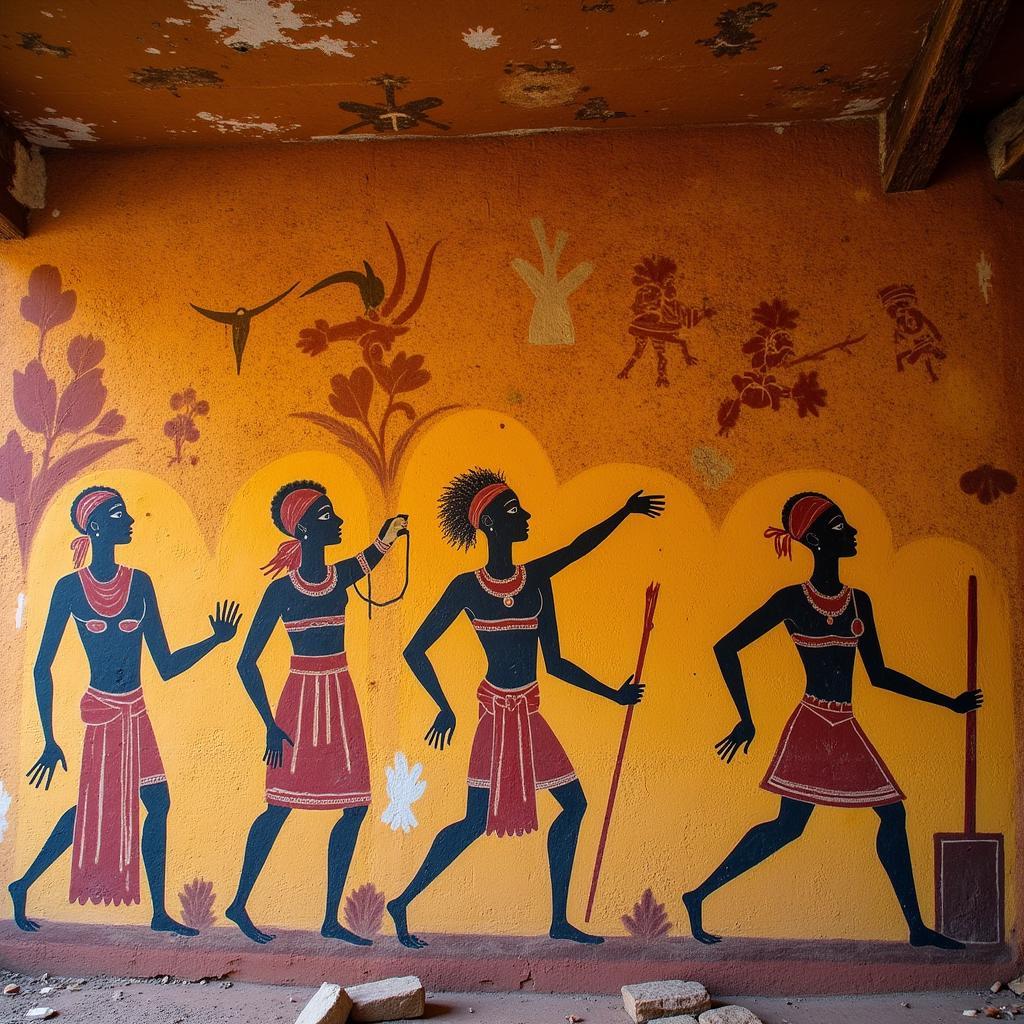African Farmers Selling at Low Prices: Unraveling the Complexities
African Farmers Selling At Low Prices is a complex issue rooted in a multitude of factors, from global trade practices to local market dynamics. This pervasive challenge has significant implications for the livelihoods of millions and the overall economic development of the continent. Understanding these interconnected elements is crucial to finding effective and sustainable solutions.
The Global Trade Landscape and Its Impact on African Farmers
International trade policies often disadvantage African farmers. Developed nations often subsidize their own agricultural sectors, making it difficult for African farmers to compete in the global market. This leads to a surplus of cheaper imported goods, forcing African farmers selling at low prices to stay competitive. These unfair trade practices create a cycle of poverty, hindering economic growth and development. For example, heavily subsidized European poultry floods African markets, undercutting local producers.
Unfair Competition and the Struggle for Fair Prices
African farmers often lack the resources and infrastructure to compete effectively. Limited access to modern technology, storage facilities, and transportation networks puts them at a disadvantage. This forces them to sell their produce quickly, often at low prices, to avoid spoilage and losses. Additionally, the lack of market information and bargaining power further exacerbates the issue of african farmers selling at low prices. The african food market plays a crucial role in the livelihoods of many, but needs significant reforms.
Local Market Dynamics and the Challenges Faced by African Farmers
Beyond global trade, local market dynamics also play a significant role. Poor infrastructure, limited access to credit, and lack of market information contribute to low prices. Many farmers are forced to sell their products through intermediaries who often take a large cut of the profits, leaving farmers with meager earnings. Furthermore, the prevalence of informal markets with limited regulation can make it difficult for farmers to secure fair prices.
Lack of Access to Information and Resources
Many African farmers lack access to vital information, such as market prices and weather forecasts. This lack of information makes them vulnerable to exploitation and prevents them from making informed decisions about when and where to sell their produce. Imagine not knowing the value of your crops and being forced to accept whatever price is offered. This highlights the crucial need for accessible information and resources for African farmers. Consider the challenges faced by those raising the african boer goat in maharashtra, where access to market information is essential for profitability.
Towards Sustainable Solutions: Empowering African Farmers
Addressing the complex issue of african farmers selling at low prices requires a multi-faceted approach. Investing in infrastructure, improving access to credit and market information, and promoting fair trade practices are essential. Empowering farmers through cooperatives and providing training in modern agricultural techniques can also help them increase their productivity and bargaining power. The african boer goat market in maharashtra offers a glimpse into the potential for specialized markets to benefit farmers.
Investing in Infrastructure and Technology
Investing in rural infrastructure, such as roads, storage facilities, and irrigation systems, can significantly improve the efficiency of agricultural production and market access for African farmers. Access to modern technology, including mobile phone-based market information systems and weather forecasting tools, can also empower farmers to make informed decisions and negotiate better prices. Information about the african boer goats rate of 1 kg can be vital for price negotiations. Furthermore, supporting initiatives like the african black mall can create new market opportunities and promote entrepreneurship.
Conclusion
The issue of african farmers selling at low prices demands urgent attention and concerted action. By addressing the underlying causes and implementing sustainable solutions, we can empower African farmers to thrive, improve food security, and promote economic development across the continent.
FAQ
- Why do African farmers sell their products at low prices?
- What are the consequences of low prices for African farmers?
- How can global trade policies be made fairer for African farmers?
- What role can technology play in improving the livelihoods of African farmers?
- How can we support African farmers in getting fair prices for their products?
- What are some examples of successful initiatives that have helped African farmers?
- How can consumers make informed choices that support African farmers?
When you need assistance, please contact us at Phone: +255768904061, Email: [email protected] Or visit us at: Mbarali DC Mawindi, Kangaga, Tanzania. We have a 24/7 customer service team.



